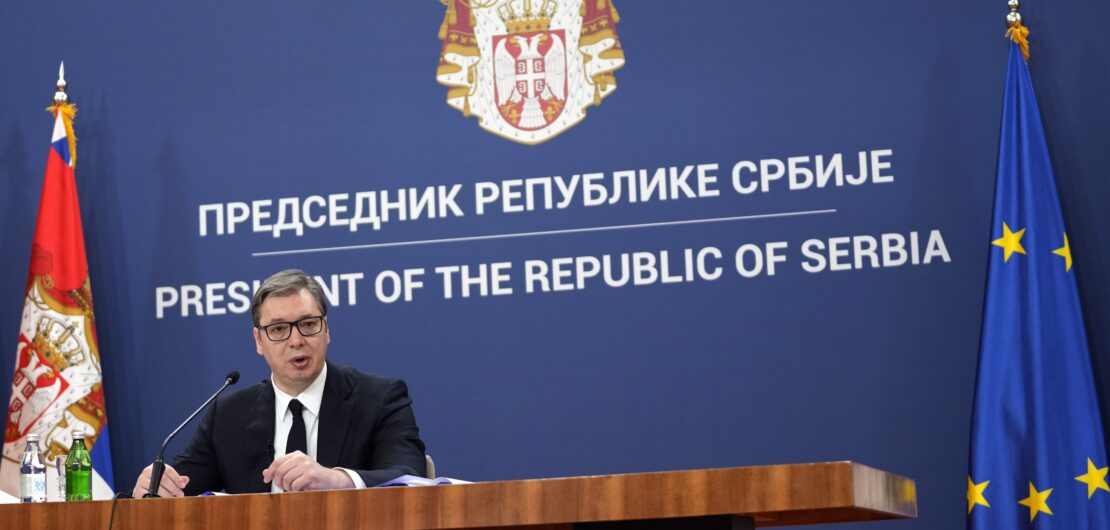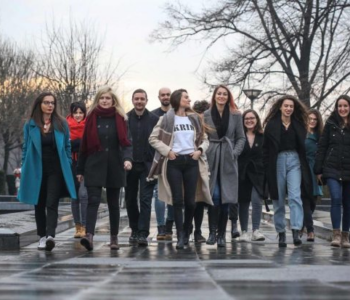 Library
Library
Serbia: SLAPPs used to intimidate journalists and evade public…
Serbia: SLAPPs used to intimidate journalists and evade public scrutiny
Powerful individuals in Serbia are abusing the law by filing lawsuits without merit against journalists, media outlets and activists. They are doing this to prevent journalists from investigating them or exposing corruption and abuses of power.
Known as Strategic Lawsuits Against Public Participation or SLAPPs, politicians and business people are using these malicious lawsuits to harass and force their critics into time-consuming and costly legal proceedings. As a result, they are silencing journalists and evading public scrutiny.
In the latest report by ARTICLE 19, the American Bar Association (ABA) Center for Human Rights, and the Independent Journalists’ Association of Serbia (NUNS), we analyse the provisions that are most commonly misused to file SLAPPs in Serbia. We highlight patterns from multiple cases brought against journalists and activists by public officials and other powerful individuals in the past 10 years. We also assesses whether and to what extent Serbian laws and judicial practices on the ‘protection of reputation’ comply with international standards on freedom of expression. Finally, we provide recommendations to the Government of Serbia and the Judiciary to align key legislation with international freedom of expression standards.
The recent wave of lawsuits against the investigative portal Network for Investigation of Crime and Corruption (KRIK) in Serbia, shows that SLAPPs are becoming an all too common tool for the rich and powerful to stifle critical voices in the country. In light of the upcoming parliamentary elections in April it is crucial that politicians acknowledge the dire consequences of legal harassment against journalists and denounce any form of pressure on independent media.
Key findings
Serbian legislation provides limited means to protect freedom of expression
Our report finds that Serbian legislation provides some specific safeguards that protect the right to freedom of expression in reputation cases against the media. In particular, the Media Law requires that a plaintiff provides evidence to support their claim and sets a shorter statute of limitation (as compared to civil law cases) to initiate a case.
Narrow definition of journalism
Serbian courts follow a very narrow definition of journalism. As a result, only journalists and media outlets who are listed in the Media Registry receive broader protection guaranteed in the Media Law.
Vague terminology in defamation provisions
Certain provisions of the Serbian legislation protect notions of ‘honour’, ‘authenticity’, or ‘piousness’. These terms are ambiguous, lack any clear context, and are open to interpretation (and therefore to abuse).
There are challenges to implementing legislation in courts
Although Serbian legislation includes a number of defences that can be used in defamation cases, courts often fail to consider these in practice. In their decision-making, courts often prioritise plaintiffs’ claims about mental anguish even if the actual harm to their reputation is unsubstantiated. In addition, judges often fail to apply broad protection for the right to freedom of expression approved in international standards.
Imbalance of power
Journalists and activists in Serbia are ill-equipped to defend themselves in SLAPP cases. They do not have access to free legal aid. In addition, the Serbian legal framework lacks safeguards to prevent or discourage SLAPP lawsuits, such as early dismissals or procedural expediency. On the other hand, politicians and business people who bring these baseless cases typically have significant amounts of time and money to bring these false lawsuits, and abuse the justice system.
What can be done?
Collectively, we urge the Government of Serbia to undertake all necessary measures to eliminate SLAPPs, which should include:
– A thorough review of the provisions on defamation in the Media Law and the Law on Contracts and Torts to align them with international freedom of expression standards
– Eliminating a vague legal terminology that could be abused to start SLAPP suits
– Imposing a fixed ceiling on the amount of money that may be awarded for cases that claim ‘harm to reputation’
– Recognition of the functional1 rather than theoretical definition of journalism
– Improving the judiciary’s application of international and regional standards on freedom of expression
– Following the rule that public individuals (eg. political leaders) must show wider tolerance to criticism as they are accountable to the public.
This report was written by ARTICLE 19, the American Bar Association (ABA) Center for Human Rights, and the Independent Journalists’ Association of Serbia (NUNS). It is part of a series of reports on SLAPPs against journalists in Europe that ARTICLE 19 is publishing as a member of the Media Freedom Rapid Response (MFRR). These reports outline the implications of SLAPPs for media and democracy.
In December 2021, ARTICLE 19 published a report on SLAPPs in Spain. Key findings and recommendations from each of the country reports will inform a comprehensive regional report on SLAPPs in Europe, forthcoming in March 2022.
You can read more about ARTICLE 19’s work on SLAPPs here







